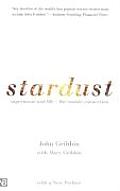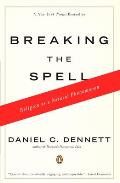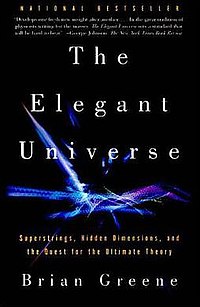 |
| Source |
Odd and the Frost Giants
Yes, I am a sucker for Norse mythology. Yes, I am a sucker for Neil Gaiman. And yes, that's why this was one of my purchases at his talk. Sure, it's a kid's book. But it's Neil Fucking Gaiman, and that means even adults can enjoy guilt-free.
In this book, Odd has to help Odin, Loki and Thor take back Asgard from the frost giants. You've got this little crippled kid with an infuriating smile using his wits to change his life and help the helpless gods. Hijinks ensue. Arguments are argued. Giants are fought without fighting. Words are smithed. It's about the perfect book to read on the porch on a sunny afternoon.
The only thing I ask now is that the sequel be a Doctor Who crossover, because I really want to read a book called Odd and the Ood.
 |
| Source |
Godless
I spotted this on a display table in Barnes and Noble one day, and decided I must read it. Dan Barker, you see, used to be an evangelical preacher. We have quite a lot of deconversion stories, but he's one of the few Bible-breathing fire-and-brimstone Christians who's made the journey from preacher man to pure-A atheism, and written a book that covers the whole trip.
It wasn't an easy journey: he had deep ties, both personal and financial, to the religious community. He shows how he navigated some pretty treacherous waters and came out whole. He gives us deep insight into the mind of someone who truly believes, heart and soul, every word of the Bible. And he shows us how wonderful life is on the other side of faith. I don't think this book gets the attention it deserves. It's not just an argument against religion, it's not just a celebration of reason, but an enthusiastic embrace of the godless life. He shows that the journey's not only possible, but deeply rewarding. Excitement and enthusiasm leap from every page. And there are moments of hilarity: I think my favorite was when he found out one of his old associates had asked, in all earnestness, upon finding out this evangelical preacher had turned into a certified atheist, "But isn't Dan afraid of hell?" Um, no. Rather difficult to be afraid of something you've completely ceased to believe in.
One of the things I like the most about Dan is that he shows people can become atheists for purely intellectual reasons. They're not upset at the church, they haven't been through some trauma, they just started seeing evidence stack up against the existence of god and accepted it. He shows that one can be completely happy and fulfilled without belief in the supernatural. This is an excellent book for anyone who wants to see inside both mindsets, and who wants something that celebrates atheism as much as it disproves religious myths.
 |
| Source |
Stardust
I have only one thing against this book, so I shall get that out of the way first: by the umpteenth time the author said, "But that's beyond the scope of this book," I wanted to whack him upside the head with the book. Thankfully, it is a small paperback and wouldn't have done much damage. Note to authors: it's perfectly okay to skim over stuff without saying "beyond the scope" every bloody time. It's a short book. If we're expecting every single topic touched on to be covered in exhaustive detail, we're the ones with the problem, not the book.
That said, this is a delightful introduction to the fact that we are, as Carl Sagan said, made of star stuff. It ties astronomy, chemistry, physics and biology together beautifully. You come away from it with a little bit of a strut, and quite a lot of awe. We are made of awesome stuff, people. This universe is an amazing place. And this is about the perfect book to give to someone who doesn't realize how tied to the stars we all are, or who thinks astrology whenever our connection to the stars is mentioned. It's so much more interesting than pseudoscience. The real stuff is much more dramatic. Nice to have an easy-to-read book that gets that across.
The End of Faith
This is the book that started it all, or at least that's what I've seen claimed. It was one of the first of the "New Atheist" books. Thing is, it's only that when you consider a narrow window of time. We'll get to that later. But Sam Harris gets quite a lot of credit: during a time when people were tip-toeing around faith for the most part and it was hard to find anything non-bland that talked about atheism, he laced up the old hobnailed boots and trampled all over cherished beliefs. And it sold a huge number of copies, putting the lie to any idea folks had that there wasn't a market for this kind of thing. He fully deserves his position as one of the Four Horsemen.
Now, I don't always agree with him completely. There are times in this book when I shake my head and think he's gone a bit hysterical. (That's usually just before some fanatical religious fuckwit comes along and makes me wonder for a bit if Sam was perhaps not hysterical enough.) It's not an easy read, and not quite a pleasant one, but it's guaranteed to shake you out of complacency and get ye old synapses firing. It's got a huge amount of useful stuff in. It's got some bits that will make you turn a chary eye on your own brain, which it deserves, because the bloody thing doesn't always work properly. And it's pretty much a classic in modern atheist literature. So if you're interested in atheism, this is an essential read. Even if you're not, you should probably read it anyway. There are points within that must be addressed in any dialogue between religion and atheism.
 |
| Source |
Letter to a Christian Nation
I read this as a chaser to The End of Faith. It's an answer to many of the things Christians came at Sam with, and it's rather brutal - not because he's mean, but because he's honest. In this case, truth and honesty aren't sweet and gentle.
Anyone religious who wants to argue with Sam must read this book, because chances are he's already demolished you, and you might as well not bother.
Anyone not religious who wants a shot in the arm should read this book, because it's full of the things we so often want to say and can't always articulate. It's a balm for those trapped in a nation full of religious people who have the delusion that a nation founded on secular principles is supposed somehow to be Christian. A lot of myths are busted. And it simplifies matters for you: instead of having to argue endlessly yourself, you can just hand a copy to people who insist on this Christian nation crap, and go do something more interesting with your life. Hey, they want us to read their books, it's only fair they read ours, right?
 |
| Source |
Breaking the Spell
Dan Dennett is a professional philosopher. That means he can completely deconstruct someone's worldview without saying one obviously not-nice thing. You may be a bit surprised that he's one of the Four Horsemen of Atheism after reading it, because it comes across as awfully mild for an apocalyptic tract. It's just that when he's done, the spell really is broken, and that's hard on the folks who had a lot invested in the spell.
This is an excellent book for those more philosophically minded, who shy away from the more blunt styles of the other Horsemen, but who aren't afraid to see religion put to some pretty tough scrutiny. This is another of those classics of modern atheist literature that anyone who wants to be well-read on the subject should pick up. And it's a very necessary book.
 |
| Source |
The Elegant Universe
This is one of the few books that's ever made me feel good about math. Not that it's full of equations, but Brian Greene talks a lot about how these weird things mathematicians came up with, things that seemed purely abstract and intellectual, ended up being very useful for physicists. That's the main thing this book gave me: a new appreciation for people who sit around playing with numbers just because they think they're beautiful.
I'm still not all that sure about string theory, and I surely don't understand it well, but this is a great book for those who want to know more about it. Brian shows us how well it could reconcile relativity and quantum mechanics if it pans out. It also helped me understand those well-established branches of physics much better. This is cutting-edge stuff. We've a long way to go before it's as fundamental as the older two physics theories, and it may not be what we're looking for, but at the very least, it's fascinating. And if you, like me, have a hard time understanding dimensions outside of the usual four, then you need Brian Greene: he illustrates tough-to-visualize concepts in a way that allows you to grasp them without having to learn all sorts of complicated mathematics. That's always a plus.








No comments:
Post a Comment